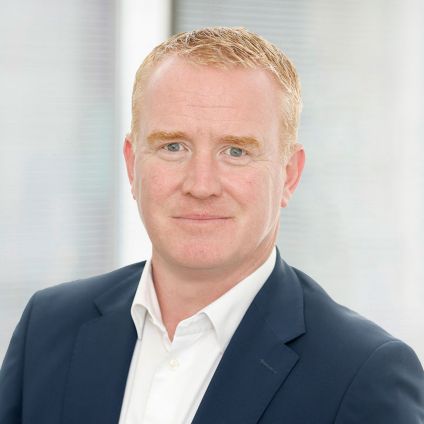Despite some headwinds, business leaders at home and abroad remain generally optimistic about the future with some disparities in sentiment depending on location.
We asked CEOs about the prospects for both the global and local economies as well as specifically about their own business. In terms of the world economy, CEOs in both ROI and NI are less optimistic about the global economy than their peers worldwide, with 60 percent within each jurisdiction having confidence about the growth of the global economy over the next three years, compared with 73 percent of CEOs worldwide.
Interestingly, CEO confidence about three-year growth in the local economy in the Republic is up year on year from 76 percent in 2022 to 87 percent in 2023.
Multinationals & FDI
Tom Woods, Head of Tax with KPMG in Ireland, says that Ireland’s relative strengths in several key areas help underpin such measured optimism; “Ireland’s appeal as a location for multinational investment has had a particularly transformative effect on our economy. Sectors such as tech and pharma, for example, continue to see strong customer demand and more broadly the multiplier effects of FDI across the economy are significant.”
However Woods sounds a note of caution; “We clearly can’t take our success or the resulting tax revenues for granted and we need to continually review our policies. The personal tax changes and improvement to our R&D regime announced in the budget are welcome. However there is an opportunity to use tax policy to do more to encourage entrepreneurship and mobile talent, to support the delivery of more affordable housing and to promote more innovation in a highly competitive global environment for inward investment.”
NI Outlook
For Johnny Hanna, Partner in Charge for KPMG in Northern Ireland, it is clear the majority of local business leaders remain optimistic about future growth opportunities notwithstanding the continuing lack of a functioning local executive.
“We similarly remain confident about the future prospects for the NI economy” says Hanna who reinforces the point that “Dual UK and EU market access provides exciting opportunities building on the talent, cost and other advantages that NI offers both prospective inward investors and local businesses.”
Growth predictions
Intel co-founder Robert Noyce once noted that optimism is “An essential ingredient of innovation. How else can the individual welcome change over security, adventure over staying in safe places?”.
Since we launched our CEO Outlook, business leaders both in Ireland and worldwide have tended to be more optimistic about the prospects for their own business than that of the local or global economies.
In terms of prospects for their own businesses, almost three quarters (73 percent) of CEOs in ROI remain confident that their company will grow over the next three years. Optimism is slightly higher north of the border with 80 percent of CEOs confident in stronger growth, marginally higher than the picture globally at 77 percent.
Meanwhile, CEOs in ROI are less confident about the growth prospects of their industry, sitting at 63 percent compared with 77 percent in NI and 78 percent globally.

The cost of money
The context for financing has changed. The tightening of monetary policy is forcing CEOs to reflect on the possibility of a credit squeeze. Inflation, whilst falling in many markets is stubbornly high in others and CEOs know the risks inherent in calling the top of the curve on interest rates.
Whilst CEOs everywhere express concern about interest rate hikes, CEOs in Ireland appear relatively less worried about the impact of rising rates and tightening monetary policy on prolonging a potential recession. Just under two thirds (63 percent) of ROI business leaders are concerned about rate hikes, rising to 70 percent in NI and 77 percent worldwide.
Underpinning this optimism, 90 percent of CEOs in ROI expect to see increased earnings in the next three years whilst in NI similar earnings expectations are held by 83 percent of respondents with expectations worldwide even more optimistic at 91 percent.
Headcount growth

To help deliver these expected increases, people and talent remain core to delivering leadership ambitions. Notwithstanding often quoted concerns about the impact of Artificial Intelligence (AI) on employment, over 8 in 10 (81 percent ) CEOs worldwide believe their headcount will increase in the next three years. The numbers are slightly lower in Ireland although still very positive, with 70 percent in ROI and 67 percent in NI believing employee numbers will rise.
For Michele Connolly, Head of Corporate Finance at KPMG in Ireland it’s very positive that businesses across the island plan on increasing headcount even as the global economy faces some challenges. However, we need to get better at improving infrastructure to keep up with this growth.
According to Connolly, “New innovative ideas, improvements to our planning system and strong engagement between the public and private sector will be essential for our infrastructure development plans to meet the needs of our population, particularly with regard to housing, transport and energy. We need to get good infrastructure built faster.”
Meanwhile, CEOs face an array of strategic options. Recognising that not everything can be a priority, how do you allocate capital and decide the balance between organic and inorganic growth?
From improved tech and innovation to expanding product or service portfolios, CEOs are expected to get the big calls right. Introducing new products or developing current ones isn’t an “either or” choice. Expanding into new markets, integrating sustainability, adding new skills and building alliances all need to be considered at pace and they all come at a price.
Moreover, being blindsided by technological and other change has been a recurring leadership concern since we began our survey programme. For many CEOs, the question is do you build or buy the capability? Or can you deliver with a mixed approach?
Indeed in ROI, for a third of respondents (33 percent) addressing the competitive landscape is the most popular reason to prioritise inorganic growth over organic growth. However in NI the main potential driver of inorganic growth is the availability of financing as cited by just over a quarter (27 percent) of those surveyed.
There is still an appetite from buyers and funders of all types who are sitting on dry powder and looking to invest.

The outlook for M&A
In the case of attitudes to M&A, just under one in four CEOs (23 percent) in ROI cite a “high appetite” for M&A meaning they will undertake acquisitions which will have a significant impact on their organisations. This is relatively subdued in comparison with their counterparts north of the border (47 percent) and those worldwide (51 percent).
Meanwhile nearly two in three (63 percent) CEOs in ROI report a more moderate appetite for dealmaking indicating that they still intend to undertake M&A but with a more modest impact on their organisations. In NI such sentiment is shared by 40 percent of respondents, closer to the global average of 37 percent.
According to Mark Collins, Head of Deal Advisory with KPMG in Ireland, the findings are not particularly surprising but may hide some underreported ambition.
Noting that the days of cheap credit are behind us, Collins says; “Dealmakers are still driven by opportunity but are appraising assets with a heightened degree of focus on the strategic merits of the deal. However, there is still an appetite from buyers and funders of all types who are sitting on dry powder and looking to invest in businesses that have shown resilience through recent global economic challenges.”

Questions to consider
Have you stress tested your business to consider ‘higher for longer’ inflation and borrowing costs?
With credit tightening do you understand your cash and liquidity requirements?
Are you up to speed on your energy options in the context of greater price and supply volatility?
Have you considered your exposure to potential falls in discretionary consumer spending?
Read by chapter
Queries? Get in touch
If you have any queries about the impact of the national and global economies for your business, please contact our team below.
We'd be delighted to hear from you.
Tom Woods
Partner, Head of Tax
KPMG in Ireland
Johnny Hanna
Partner-in-charge
KPMG in Northern Ireland
Mark Collins
Partner, Head of Deal Advisory
KPMG in Ireland

